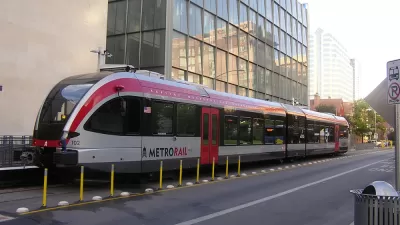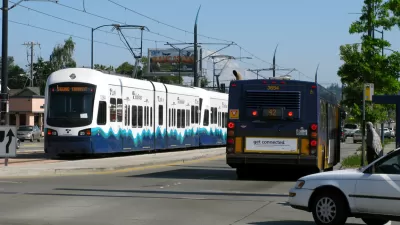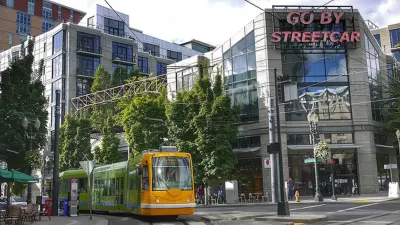Voters in the city of Seattle will consider a sales tax to fund bus transit service, while voters around the state of Washington will have a chance to send new leaders to Congress.

Heidi Groover explains Proposition 1, which asks Seattle voters to approve a 0.15 percent sales tax to fund bus service on the King County Metro system.
"The six-year tax measure would replace an expiring 0.1% sales tax and $60 car-tab fee that raised more than $50 million a year. Prop. 1 would not renew the car-tab fee," explains Groover, referencing the controversial Initiative 976, approved by voters in November 2019 to reduce the cost of annual vehicle licensing fees and thrown out by a judge in October 2010.
According to Groover, Proposition 1 is expected to "test voters’ willingness to approve a tax increase after months of economic uncertainty."
Groover shares details of the spending plan for Proposition 1 released by Mayor Jenny Durkan's office:
In the first three years of the new tax, the city would spend $12 million to $20 million for service on bus routes serving Seattle, according to a spending plan provided by Mayor Jenny Durkan’s office.
That would grow as the economy rebounds, with about $34 million for bus service by 2026. The tax measure requires that starting in 2022, the majority of spending be on Metro-operated service.
For the first four years of the tax, another $5 million to $6 million a year would fund projects city leaders are labeling “emerging needs,” which could be related to COVID-19 or the West Seattle Bridge closure.
The article includes a lot more detail about how the city would spend the tax revenue if voters decide to approve Proposition 1 tomorrow.
In related election analysis, Gregory Scruggs writes an article about how the election could change infrastructure funding allocations from the federal government to the state of Washington and the Seattle region. Scruggs specifically calls attention to the potential for a version of the $1.5 trillion "Moving Forward Act," approved by House Democrats over the summer, to be revived after the election.
To get an idea of how the candidates for Congressional office might sway the direction of federal infrastructure spending in the years to come, Scruggs provides analysis of the candidates up for election in five Congressional districts in the state of Washington.
FULL STORY: City ballot measure would raise sales tax for Seattle bus service, other transportation projects

Planetizen Federal Action Tracker
A weekly monitor of how Trump’s orders and actions are impacting planners and planning in America.

Maui's Vacation Rental Debate Turns Ugly
Verbal attacks, misinformation campaigns and fistfights plague a high-stakes debate to convert thousands of vacation rentals into long-term housing.

San Francisco Suspends Traffic Calming Amidst Record Deaths
Citing “a challenging fiscal landscape,” the city will cease the program on the heels of 42 traffic deaths, including 24 pedestrians.

Amtrak Rolls Out New Orleans to Alabama “Mardi Gras” Train
The new service will operate morning and evening departures between Mobile and New Orleans.

The Subversive Car-Free Guide to Trump's Great American Road Trip
Car-free ways to access Chicagoland’s best tourist attractions.

San Antonio and Austin are Fusing Into one Massive Megaregion
The region spanning the two central Texas cities is growing fast, posing challenges for local infrastructure and water supplies.
Urban Design for Planners 1: Software Tools
This six-course series explores essential urban design concepts using open source software and equips planners with the tools they need to participate fully in the urban design process.
Planning for Universal Design
Learn the tools for implementing Universal Design in planning regulations.
Heyer Gruel & Associates PA
JM Goldson LLC
Custer County Colorado
City of Camden Redevelopment Agency
City of Astoria
Transportation Research & Education Center (TREC) at Portland State University
Jefferson Parish Government
Camden Redevelopment Agency
City of Claremont





























